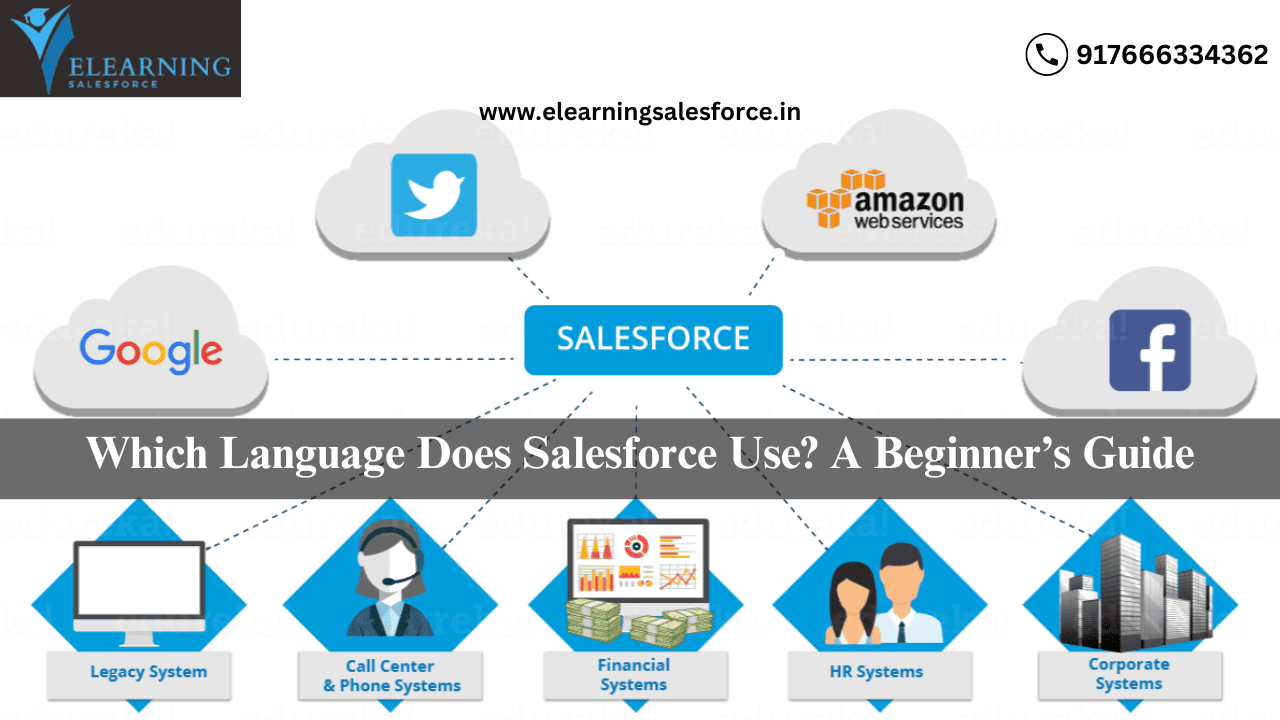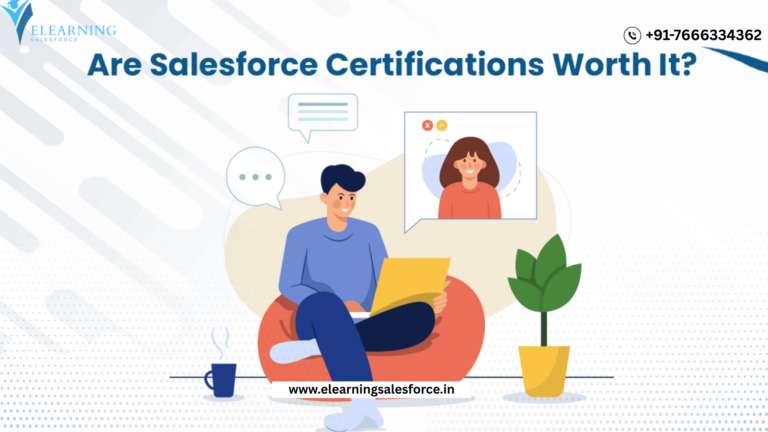If you’re considering exploring Salesforce, you’ve probably heard a lot of talk about its robust cloud platform and customer relationship management (CRM) capabilities. However, one of the first questions you may have while creating on Salesforce is: What language does Salesforce use?
We’ll break down the languages you need to know in order to begin developing Salesforce apps in this blog. Knowing Salesforce’s programming languages will put you on the right track, whether you’re an aspiring developer or someone trying to improve your business’s CRM strategy.
Let’s explore!
The Core Language of Salesforce: Apex
Apex is the main programming language used by Salesforce for bespoke development. Apex is an object-oriented, strongly-typed language that lets you include business logic into Salesforce apps. Consider it the engine that powers your Salesforce instance, allowing you to do everything from process complex data to automate operations.
Why Apex?
- Salesforce Native: Because Apex was created especially for Salesforce, it seamlessly connects with all of the platform’s capabilities and data.
- Server-Side Logic: Apex is a useful tool for task automation and developing bespoke features because it enables you to design intricate logic that executes on Salesforce’s servers.
- Simple to Learn: Beginners with some coding knowledge can easily learn Apex because it is comparable to Java, which is frequently taught in programming schools.
Real-World Example:
Let’s say you want to automate a process that converts a lead into an account based on certain conditions. By creating a trigger based on specific business principles, you may use Apex to automate this procedure.
Visualforce: Customizing the User Interface
Visualforce is the language used to customize the front-end (user interface) of Salesforce applications, whereas Apex manages the back-end functionality. With Visualforce, developers can create unique sites that easily interface with Salesforce using a tag-based syntax akin to HTML.
Why Visualforce?
- Extremely Customizable: With Visualforce, you may add unique styles, themes, and components to create a user interface that suits the demands of your business.
- Apex integration is simple, allowing you to present dynamic data and design effective user interfaces.
- No Need for External Platforms: To create unique pages in Salesforce, you don’t require any outside tools.
Real-World Example:
Let’s say you wish to design a unique website that shows client data in particular fields. You can use Visualforce to create a page that retrieves this data straight from Salesforce and presents it to the user in an understandable manner.
Lightning Web Components (LWC): The New Wave
Lightning Web Components (LWC), Salesforce’s framework for creating quick, reusable components in Salesforce’s Lightning Experience, was introduced as a contemporary substitute for Visualforce. LWC makes it simpler for developers who are familiar with front-end technologies by utilizing contemporary web standards like HTML, CSS, and JavaScript.
Why LWC?
- Faster Performance: Your Salesforce apps will run faster thanks to LWC’s lightweight architecture.
- Modern JavaScript: Because LWC makes use of the most recent ES6+ standards, it is a logical choice if you are already familiar with JavaScript.
- Component-Based: Create reusable, modular parts that work with other Salesforce apps.
Real-World Example:
If you’re building a custom dashboard for your sales team, LWC allows you to create interactive components such as graphs, charts, and data tables, which can all be reused and customized based on different needs.
Market Trends: The Rise of Salesforce Development
Salesforce development has been picking up speed, and as more businesses use Salesforce’s CRM products, there is an increasing need for qualified developers. Salesforce’s programming languages might help you stand out in the job market as companies shift to more automated, customized solutions.
- Increased Salesforce Adoption: Salesforce’s position is becoming more and more in demand across a range of industries as companies concentrate on providing exceptional customer experiences.
- Growth of Lightning Components: Using Lightning Web Components (LWC) to create contemporary, scalable apps has become more popular as a result of Lightning Experience.
- Demand for Apex Skills: As businesses continue to search for methods to automate procedures and provide unique solutions, proficiency with Apex is still in great demand.
Whether you’re new to programming or have a background in development, Salesforce offers a wealth of opportunities. With the right skill set, you can leverage Salesforce’s powerful tools to help businesses succeed and boost your career at the same time.
Practical Tips for Beginners
Here are a few tips to help you get started on your Salesforce development journey:
- The following advice will assist you in beginning your Salesforce development journey:
- First, the fundamentals: Start by looking at Salesforce’s documentation and free educational materials like as Trailhead. You will gain a strong foundation in Salesforce and its fundamental languages as a result.
- Learn Apex: Apex is the foundational language for Salesforce development, so if you’re new to programming, start with it. If you know the fundamentals of programming, it’s straightforward to understand and comparable to Java.
- Master Lightning Web Components: To stay up to date with the newest developments in Salesforce development, it is a good idea for beginners to master LWC.
- Create Projects: Get experience by creating basic Salesforce projects. To obtain practical experience, personalize an application or automate a business procedure.
- Become a Part of the Salesforce Community: Salesforce boasts a thriving development, user, and administrative community. To stay informed and receive assistance, participate in webinars, forums, and groups.
Your First Step Toward Success
It’s time to start using Salesforce now that you are aware of the languages it uses and how they support custom development. Gaining expertise in Salesforce development can lead to fascinating prospects, whether your goal is to improve your company’s CRM experience or explore a new career path.
Start now by delving further into Salesforce development by exploring our advanced learning tools. To realize your full potential for financial literacy, professional advancement, and company success, begin honing your abilities now!
You may be interested in this blog here:
DOES HBASE IS GOOD SOLUTION FOR ODS (OPERATIONAL DATA STORE)?
Code Snippets for Specific Programming Tasks
How Many Employees Does Salesforce Have in 2024?



